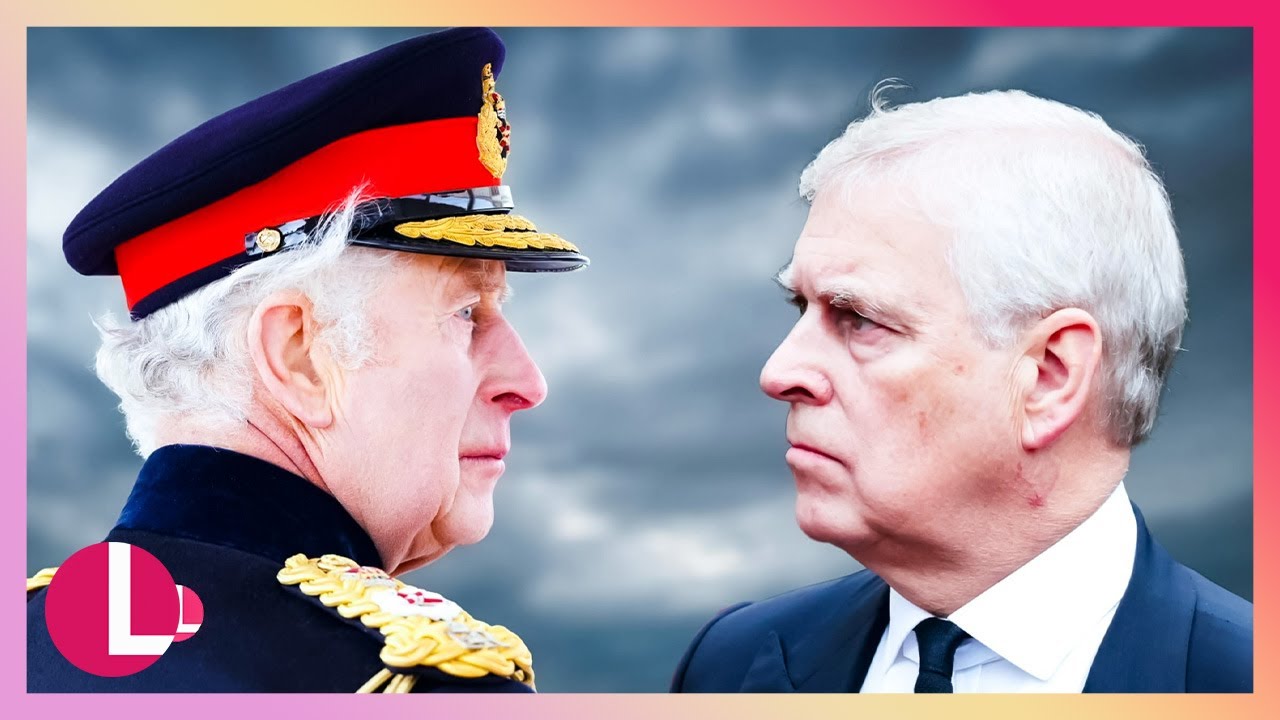In the latest twist of royal affairs, Prince Andrew finds himself at the center of a scandal that reveals just how far the mighty have fallen.
The once-untouchable prince is now clinging to Royal Lodge, his last remnant of relevance, as his world crumbles around him.
Recent revelations have shed light on this extraordinary situation, and it’s a story that’s hard to ignore.
Prince Andrew’s current predicament is a striking reminder of how quickly fortunes can change.
Once strutting confidently within the royal circles, he now appears desperate to hold onto the lavish Royal Lodge.
This mansion, worth an astonishing £30 million, has become a symbol of his decline, especially after it was revealed that even Queen Elizabeth wanted him out.
Yes, the same queen who once favored him now deemed it necessary for him to downsize.
King Charles has stepped into this family crisis with a blend of firmness and compassion, showcasing a remarkable level of patience.
According to Robert Hardman’s updated biography, Charles even offered Andrew Frogmore Cottage, the residence that recently sparked controversy with Harry and Meghan.
Yet, Andrew’s stubbornness has him refusing this alternative, reminiscent of a child unwilling to part with a favorite toy.
The irony is hard to miss.
Andrew is reportedly paying just £250 a week for a property that requires extensive upkeep.
In a world where most people pay more for tiny flats, this arrangement seems absurd.
Adding to the complexity, Andrew signed a 75-year lease in 2003, granting him legal rights to stay.
It’s a savvy move, but one that raises eyebrows given his current financial struggles.
What’s even more perplexing is Andrew’s desire to pass Royal Lodge onto his daughters, Eugenie and Beatrice.
While these young women have handled their father’s disgrace with grace, inheriting a property they can barely maintain isn’t exactly a gift.
It feels more like a burden, leaving them with a legacy fraught with complications.
Let’s not forget the reasons behind Andrew’s financial woes.
His choices, including associations with controversial figures and a disastrous interview, have led to significant consequences.
His mother stripped him of titles and patronages, demonstrating that actions indeed have repercussions.
Charles has shown remarkable restraint throughout this ordeal, particularly considering Sarah Ferguson’s recent health battles.
Instead of rushing to kick Andrew out, he seems to be weighing the human impact of his decisions.
However, this kindness hasn’t been met with gratitude.
Instead, Andrew appears to be dismissing his brother’s attempts to help him regain some dignity.
In stark contrast, William and Catherine continue to exemplify what it means to be working royals.
Despite personal challenges, they maintain their commitment to duty and service.
This juxtaposition highlights the differing paths taken by members of the royal family, with Charles seeking modernization while Andrew clings to outdated privileges.
The source of this drama reflects a common struggle many face—realizing that you can’t help someone who refuses to help themselves.
It’s reminiscent of watching a friend repeatedly make poor choices, only to ignore sound advice.
Charles seems to have reached this point with Andrew, allowing him to confront the reality of his situation.
As Sarah Ferguson celebrates her successful cancer treatment, the pressure mounts on Andrew.
With fewer excuses to remain at Royal Lodge, his panic becomes palpable.
He may believe he’s winning by staying put, but this is hardly a victory; it’s a hollow existence marked by isolation and a deteriorating relationship with his brother.
The behavior of different royal family members during challenging times reveals much about their characters.
While Catherine, Queen Camilla, and Princess Anne navigate their roles with dignity, Andrew’s antics stand in stark contrast.
His desperate cling to Royal Lodge symbolizes more than just a home; it represents his last connection to a status that has long since faded.
Financially, Andrew’s situation raises questions.
If he’s no longer a burden on the King, who is funding his lifestyle?
This ambiguity adds another layer of intrigue to an already complex narrative.
Andrew could have chosen a different path, accepting Frogmore Cottage and acknowledging the reality of his circumstances, but instead, we’re left witnessing this unfortunate spectacle.
This entire saga serves as a cautionary tale about privilege and entitlement.
Andrew’s struggle illustrates how even those born into wealth can become their own worst enemies.
The weariness felt by the public watching this unfold is palpable, as many recognize the futility of Andrew’s resistance to reality.
As the royal drama continues, it’s clear that the monarchy itself is affected by Andrew’s refusal to adapt.
Each day he remains at Royal Lodge raises more questions about his place within the institution and distracts from the vital work being done by the working royals.
The ongoing saga of Prince Andrew is not just a personal tragedy; it’s a reflection of the challenges facing the monarchy in modern Britain.
Related Stories

